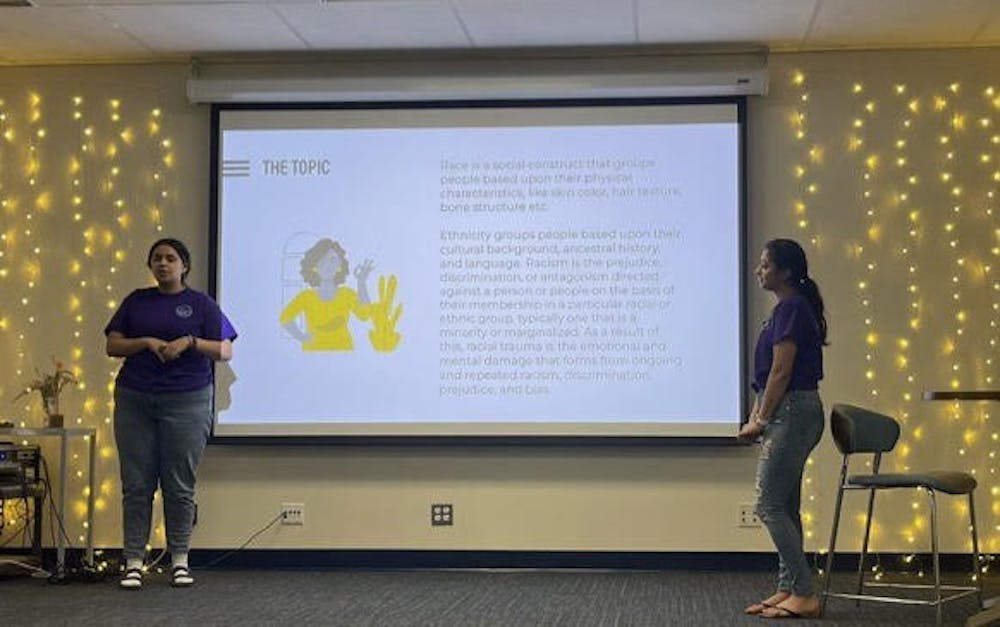By Myara Gomez
Staff Writer
AmIOK, a mental health program at the College, hosted an event on April 15 about racial trauma and internalized racism.
The event began with a presentation where they taught everyone what internalized racism is.
Internalized racism is usually found to be within minorities who try to have white features, according to the presentation. This is because society has placed these features to be “more attractive,” or “desirable.” In some cases, this results in people of color feeling less than and wanting to fit these unrealistic beauty standards.
Sophomore criminology and psychology major Sophia Santos led the group through Emotional Freedom Techniques (EFT).
EFT is when a person says affirmations and taps specific points around their body. The affirmation is being said so the person may acknowledge the issue they are working through and the tapping is sending a message to their brain to take a breather and relax.
Some of the points that a person could tap are the top of their head, their eyebrow, side of the eye, under the eye, under the nose, chin, the collarbone, under arm and the side of the hand.
Affirmations, according to the presentation, help to put a person in a positive mindset and to allow them to speak truth to themselves.
“I believe in my research about racial trauma and internalized racism,” said junior nursing major Tulika Desai. “I began to realize just how deeply mine ran. I was able to find a community in which so many people had similar experiences to me, and I’m beginning to learn how to heal through it. I hope the same goes for those that listen to our workshops. I hope they feel strong in the face of adversity and they realize that there are so many of us that are present and resilient on campus.”
Desai said that internalized racism is a form of oppression that is done by oneself.
“AmIOk has helped me with my own Racial Trauma. The program, especially through the workshops, has made me think more about my race and ethnicity in ways that I have not before,” Santos said. “It has also brought my attention to problems that people of color not only face on our campus but all over the world. The Racial Trauma workshop has definitely helped others by teaching them about racial trauma and showing them that they are not alone.”
Both Desai and Santos have been a part of AmIOk for at least a year and have been able to find places where they can share their own racial trauma.
Desai grew up in a small town with no Indian representation and she found herself feeling out of place due to cultural differences. Santos grew up feeling that she did not fit the hispanic ideals since she is half European and does not speak Spanish.
They both found a home at AmIOK and a safe space where they could share any issues they were facing and feel safe in their environment.
“You are not alone. Although it may seem like no one else understands you and that you are isolated and I promise that you do not have to go through it alone,” said Santos. “There are so many resources to help you through the tough times for when you are ready to express your feelings.”
If there is any college student in the Mercer County area that is enrolled and has experienced a traumatic event (racial trauma included) or has been the victim of violent crime. Please call AmIOK’s hotline: 609-270-4524 to receive services.







